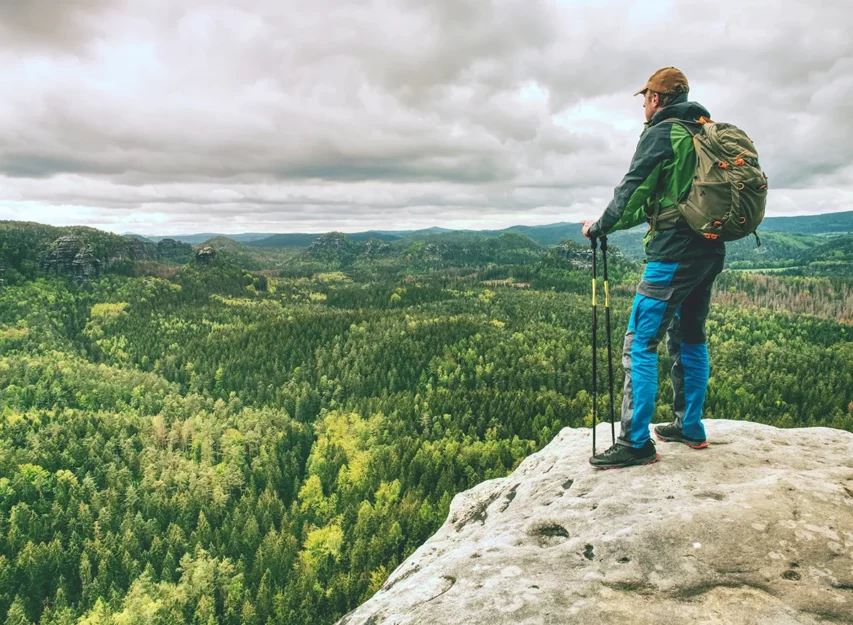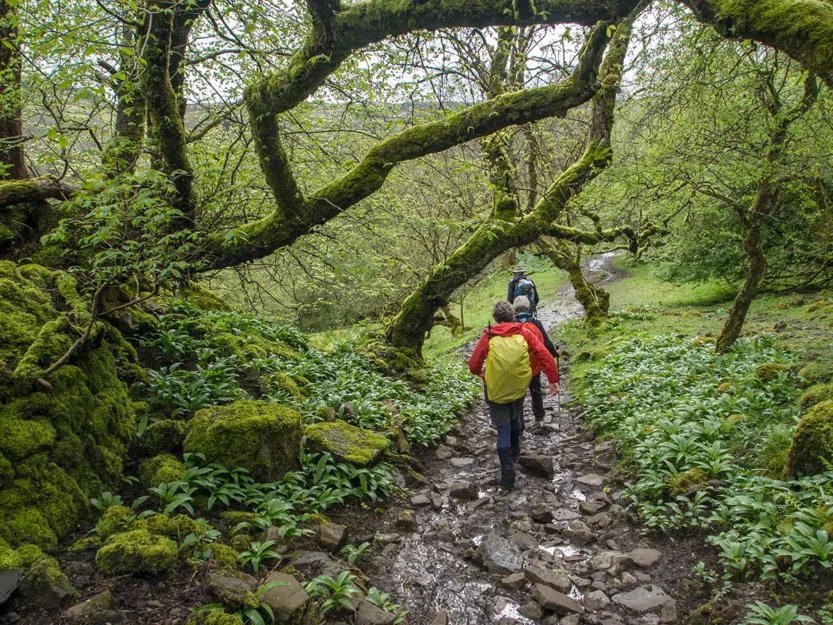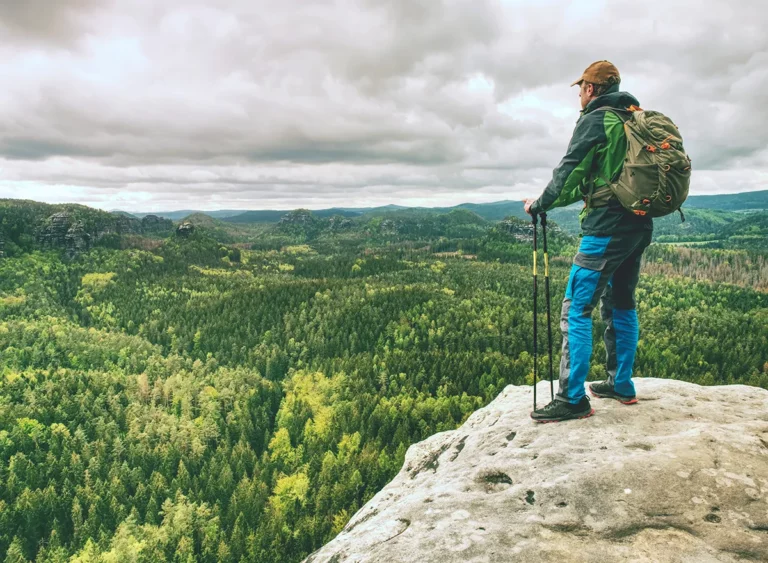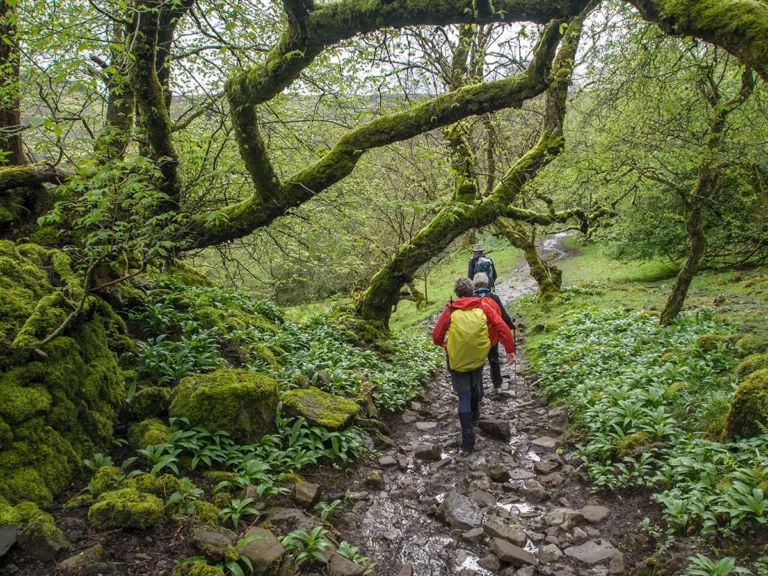Hikers expect certain aches and pains; tired legs, sore ankles, a blister, but getting back to your car to realize your toes are numb is surprising and worrisome.
Luckily, the cause of your numb toes after hiking is likely due to your footwear. A lack of circulation or the compression of nerves interrupts regular communication of your nervous system, causing the feeling of pins and needles.
With over 7,000 nerve endings in each foot, it’s easy to see how protecting our feet is vital.
Our feet constantly communicate with our bodies to provide information. The ground temperature, slope, and terrain roughness all relay to the brain telling our body how to respond appropriately.
This article helps you prevent toe numbness by detailing the common causes and how to protect your feet to avoid numb toes after hiking.
Why do I have toe numbness after hiking?
Relax; experiencing numbness in your toes from hikes is common. As long as you don’t suffer from numbness in the regular course of your day, it’s likely not caused by an underlying health condition.
Your shoes are causing toe numbness.
Poorly fitting shoes or shoes not fit for hiking — like cowboy boots, cross-trainers, and converse — can add undue stress to your feet, causing numbness and pain.
Poor circulation from overtightening shoes and compressed nerves from lack of foot support should be the primary focus to determine the right fix.

Lack of circulation from overtightened shoes
When you don’t wear the proper shoes to hike, you can expect to slip and slide, with your foot uncomfortably moving around in your shoe. The first response when your feet don’t feel secure in a shoe is to grab the laces and tighten them as much as possible.
Although your feet feel more secure, you’ve decreased the blood flow to your feet.
With feet being the furthest from the heart, circulating blood to the toes is already a challenge to our body.
To help your feet from needing overtightened shoes, consider the following:
- Wearing thick hiking socks
- Investing in quality hiking boots
- Adding insoles to loose hiking boots
Toe numbness caused by nerves
Nerves are the body’s superhighway of information, and the foot is responsible for over 7,000 nerves. With each step, your feet send signals to your brain to process a response.
When sensory nerves in your foot compress, the signal to the brain are interrupted, causing numbness.
For hikers, long walks on rugged terrain make numbness from nerve compression common. When carrying a hiking backpack full of water, the weight adds more risk of numb toes.
Numbness is common in military recruits as they adjust to marching with heavy packs and mountaineers on long expeditions.
By wearing footwear with arch support and cushioning, you can help to prevent nerve compression and damage to your feet during hikes.
Big toe numb after hiking
Your big toe takes the brunt of poorly fitting shoes. And if it’s only the big toe that feels numb, blaming your shoes is a safe bet.
For most of the population — surprisingly only 58% in the US — the big toe is the longest toe. It’s also the workhorse of our feet.
When hiking, your feet constantly navigate rugged terrain, causing your big toe to press into the front of the shoe, and squeeze into the side while pushing off to climb, step, and descend.
Our big toes take a beating on hikes. And, the next step after numbness, is hiker’s toenail, a painful bruising that discolors your toenail for six to nine months.
Although, with proper fitting shoes and thick hiking socks, you protect your toe from injury and can avoid big toe numbness after hikes.
Underlying medical conditions that cause toe numbness
Consider speaking to a doctor if you experience toe numbness during an average day. Dr. Raymond Rowan from Certified Foot & Ankle Specialists notes the many medical conditions and causes of foot numbness, such as:
- Diabetes
- Thyroid disorders
- Rheumatoid arthritis
- Alcohol use
- Chemotherapy
You can fix most chronic foot numbness through physical therapy or supplements, but surgery may be necessary to relieve nerve entrapment.
Final thoughts
Protecting your feet is vital for long-term health. If hiking is a hobby you plan to continue to enjoy, purchasing quality hiking boots is a must.
Hiking in supportive boots reduces your risk of foot pain, injury, cramping, and numbness. Hiking boots provide a more sturdy construction, ensuring your feet don’t have excessive movement, and thick outsoles to grip and absorb rocks and boulders.
If now isn’t the right time to invest in a pair of hiking boots, you can still avoid numb toes after hiking by:
- Wearing padded hiking socks
- Not overtightening your shoes
- Adding insoles for more cushion and arch support
It’s impossible to fully appreciate hiking in the great outdoors when you’re suffering from pain or concerned about your numb toes.
Part of hiking safety is using the appropriate gear, and great boots make all the difference.
Did you decide to invest in a pair of boots? Share this story to help others, and update us on your toe numbness after hiking.








